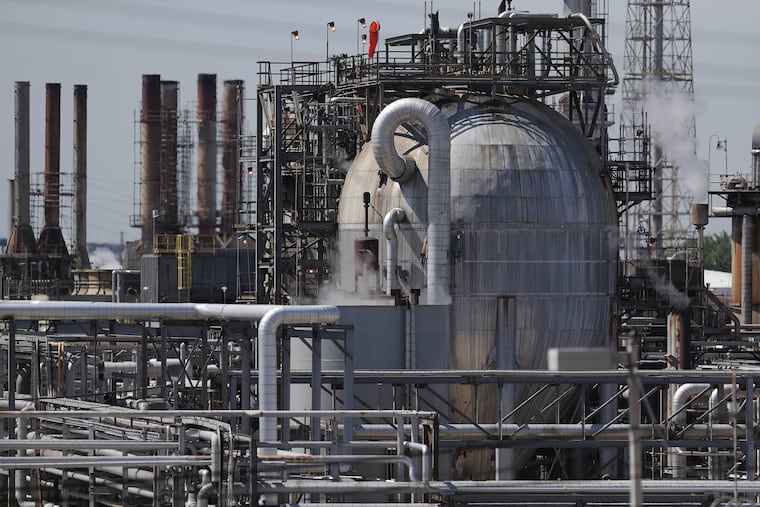Hilco’s $240 million bid for South Philly refinery wasn’t the highest offer, aggrieved creditors say
The unsecured creditors also criticized the reorganization plan for providing potentially tens of millions of dollars in bonuses for eight refinery executives.

A rival company bid $25 million more for the bankrupt Philadelphia Energy Solutions refinery complex than Hilco Redevelopment Partners, the company that was declared the winner, an advocate for unsecured creditors said in a court filing Thursday.
The committee of unsecured creditors — a group that includes contractors and the refinery’s labor union — urged its members to reject the plan because Industrial Realty Group LLC (IRG), a rival that it preferred, offered to buy the refinery assets for $25 million more than Hilco’s winning $240 million bid. “Even so, the debtors determined Hilco’s bid the best offer,” the committee said.
The objections by the unsecured creditors — who have more than $1.2 billion in claims against the refinery — could throw a kink into the refinery’s plans to sell the property to Hilco, a Chicago development company with experience repurposing old industrial properties for new uses.
City officials, environmentalists, and community activists on Wednesday expressed optimism that a sale to Hilco might chart a more environmentally friendly path for one of Philadelphia’s largest commercial real estate properties after 150 years as a fossil-fuel manufacturing center.
The unsecured creditors, who are represented by the Brown Rudnick LLP law firm in New York, said that Hilco contemplates an alternative use for the 1,300-acre complex that involves permanently shutting down the refinery, providing “little to no potential value” to unsecured contractors and workers, who would benefit more by the resumption of refining.
Though IRG is not a refiner, it was open to negotiating a deal with a refining company to operate the existing equipment. Former PES chief executive officer Philip Rinaldi, who formed a company to bid on the refinery, was not a finalist in Friday’s auction but was attempting to partner with one of the real estate groups, according to Reuters.
The unsecured creditors also criticized the reorganization plan for providing potentially tens of millions of dollars in bonuses for eight refinery executives, and for leaving unresolved the critical issue of a settlement of the refinery’s $1.25 billion insurance policy, which may be PES’s most valuable asset after it shut down in June following a catastrophic fire.
In the hierarchy of parties with claims on PES, the unsecured creditors rank below the refinery’s term-loan lenders, who are owed $711 million, and the bank that financed the refinery’s products transactions, which is owed more than $255 million. Unsecured creditors, which number in the thousands, include the United Steelworkers union, contractors who maintain the refinery, and railroads such as CSX Transportation Inc. and BNSF Railway Co., $3.4 million, which delivered crude oil and supplies to the complex.
Rejection of the plan by the unsecured creditors would not block its approval. However, it “will impose on the debtors a higher evidentiary burden,” the committee’s attorney said in the filing.
“In order to prevent years of potential litigation and lost value to the debtors’ estates, a global resolution amongst all the major constituencies should be reached,” the committee said. “This plan does not, in the committee’s opinion, represent a good faith effort to achieve a global resolution.”
The objections may force PES to explain its criteria for evaluating the bids.
Brian Abernathy, the city managing director who attended the auction, said in an interview Wednesday that the bid price appeared to be one of several factors the company used to compare bids. Though the process involved private negotiations behind closed doors in which the city did not participate, he said the sticking points appeared to be how much cash the bidders could bring to closing and how quickly the bidders could close a deal.
Officials from Hilco and Industrial Realty Group, which is based in California, have declined to comment on the bankruptcy.
The reorganization requires the approval of U.S. Bankruptcy Court Judge Kevin Gross, who has scheduled a confirmation hearing for Feb. 6. The deadline for creditors to vote on the plan, and for filing any objections to the plan, is Feb. 3.